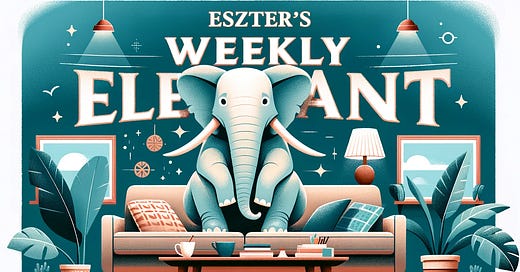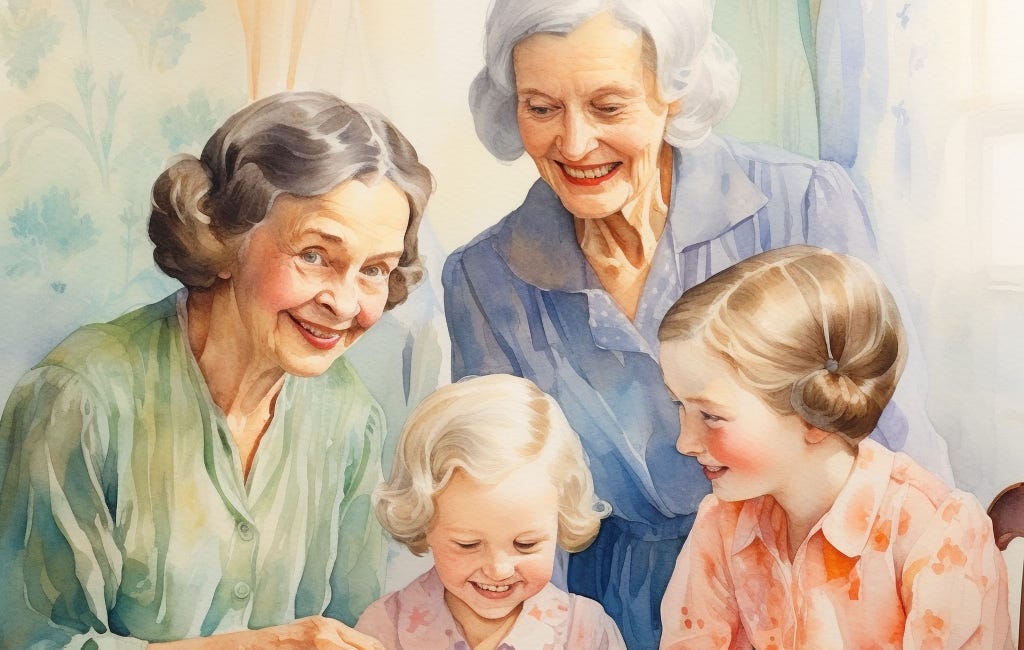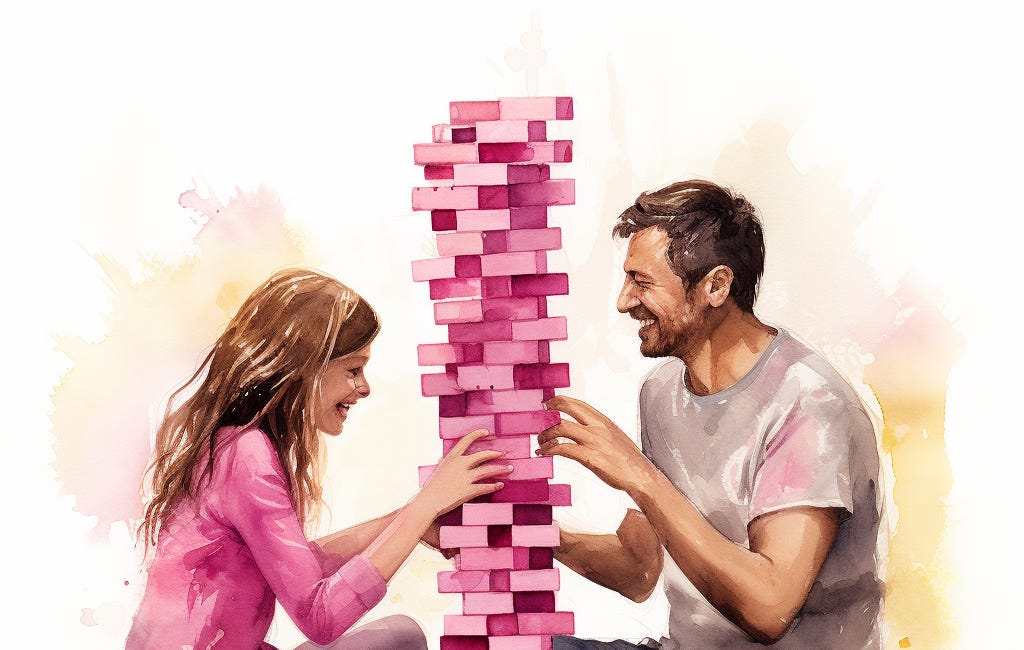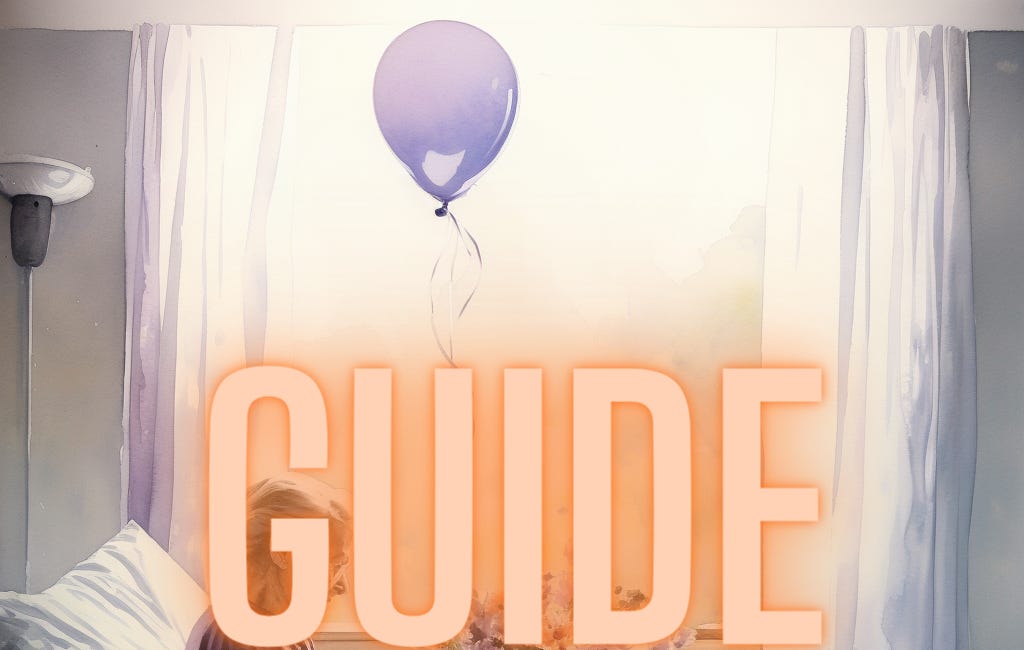Hello fellow Substackers,
We're happy to have you all here and truly appreciate your presence! What a whirlwind of a week it’s been… :) We have some interesting news for you and a special offer for our free subscribers. Let’s dive into it!
This week, we made a very interesting discovery about ourselves, which led us to restructure our publications. I'll talk about these changes a bit later, but first, I'd like to share the insights we've come to realize.
Last week, we made “The Child Turned to Stone,” a short story about the issue of having a vanishing twin, available for free. For those interested in this topic, who want to check if they started this life as a singleton or as twins, it is worth a read. If this short story deeply moves you, there's a high likelihood you had a vanishing twin yourself. The guide linked to the short story, which includes questions that can help determine if someone had a vanishing twin and introduces a method to begin processing this prenatal loss, is available to paid subscribers.
Why mention vanishing twins again? Because this week, we saw a perfect example in our own lives of how this trauma, when not fully processed, can subconsciously affect a person.
Those who have been following Eszter’s Weekly Elephant know that we originally launched three publications on Substack. It started with two, then my husband added a third, resulting in Eszter’s Weekly Elephant, Eszter’s Reading Nook, and Eszter’s Magic. For weeks, we posted to all three sites, eventually feeling that we made the system too complicated and burdensome for both us and our readers. After lengthy discussions, we decided to simplify things and focus our resources on one publication.
The idea initially stirred up emotions in both of us, and we thought we were just nervous and sad about the hassle of merging the publications. We felt the need to keep the other two publications alive and were saddened by the thought of discontinuing them. However, our emotions were too intense for a situation where no huge tragedy was occurring by consolidating our content from three platforms to one.
Experience has taught us that if we become very tense, angry, or sad without a clear reason, we are not reacting emotionally to the current situation but to some deeply buried, unprocessed feelings. In such cases, we need to find a past event or situation when we felt the same emotion. So, we sat down and thought. Silence can work wonders in these moments.
As we sat quietly, it suddenly dawned on us what was happening. From two, then three publications, only one would survive our decision... From two or three to only one... Sounds familiar?
We realized that the reason I wanted two and Nam wanted three publications was precisely how many embryos we started life with. We learned from earlier birth therapy sessions that Nam had two twin siblings, and I had one. Despite our efforts, we couldn't keep them alive, so we recreated a situation where we'd try again, this time with publications.
The intense sadness and tension arose because we were reliving the feeling of having to let go of someone/something important to us. People who had a vanishing twin often spend their whole lives trying to perform the work of two or three people, living two or three lives in one, experiencing so much, burning so brightly. Of course, this comes at a high price, as they burn out, exhaust themselves, and become mentally strained from all the changes.
Only when we realized what we were doing and, more importantly, why we decided to launch three publications despite the overwhelming burden of managing and filling them with content, could we finally let them go with peace of heart.
Clients, friends, and family members often ask me why we need to process traumas and how they affect our lives. This week, we received a textbook example of how unprocessed traumas can drive people to self-destructive decisions and actions. I'm sure that if we had continued running three publications, we would have quickly burned out.
From now on, Eszter’s Weekly Elephant will be the place where you can find all our content, including articles on self-discovery, personal essays, literary bonbons, book recommendations, original short stories, and their accompanying guides. Some of the content will be available to everyone, while the rest will be accessible only to paid subscribers.
When we realized that we had to let go of our unborn twin siblings and then looked at the next self-discovery article we were going to post this week, we both burst into laughter. This week's free article happens to be about letting go and why we are often unable to dismount from a dead horse. Many say that life has a sense of humor and that we continuously receive signs on how to proceed... in this case, I think both statements are true. We couldn't have received a clearer sign, and frankly, it's amusing how life shuffled the cards for us to have this realization followed by this particular article.
So, for anyone who feels they can't let go of something—a relationship, a job, a grievance, a living situation, or anything else—it's worth reading this article. The examples and questions within can help you see more clearly the reasons behind your outdated attachments, making it easier to dissolve them.
Besides the topic of letting go, this week also features an essay on Eszter’s Weekly Elephant where I share personal experiences about how the elderly women in my family shaped my personality and thus, my life. I believe that in today's shrinking family communities, much is lost that could benefit the youth. While the elderly may not understand computers or know what TikTok or Zoom are, they hold very valuable information about things that matter far more when it comes to quality of life, humanity, or survival in tough situations than most of today's technological advancements. Dismissing or forgetting their knowledge is a luxury we cannot afford if we want to create a healthier, happier society.
I remember, for instance, when I often had ear inflammations as a child, my grandmother sewed a small pillow and filled it with salt. Every time my ear hurt, she would heat this pillow with an iron; the salt held the heat well, and she placed it on my ear or I would lie on it with my sore ear. The pain quickly subsided. To this day, I don't know how it works, but I am aware that such a pillow is good for pain relief. It might be an ancient, wartime trick, but it has always worked for me. Alongside such information, wise elderly people also pass on a very solid set of human values to the young ones around them, something we need more than ever in today's value-crisis-ridden, uncertain world. How I experienced the wisdom of these elderly women and how their subtle methods shaped my life almost imperceptibly is what "The Wizardry of Life’s Veterans" article is about.
And speaking of the elderly, let's talk about this week's free short story, "The Balloon." I wrote this based on my personal experiences about one of the wise elderly women I was fortunate to know, and through whom I could see how wonderful it is to be able to reconcile with one's life. I don't want to reveal too much; the rest can be found in this short story.
We have a special offer for our free subscribers interested in unlocking access to our exclusive, paywalled content!
If you've been considering becoming a paid subscriber to access the exclusive content on Eszter's Weekly Elephant, don't miss this opportunity! Upgrade to a paid subscription now and enjoy a 20% discount for 12 months! This exclusive offer is only available until March 1st to those who receive this email. Upgrade now to become a paid subscriber at a 20% discount for a year and discover even more intriguing content!
This brings us to this week's content for paid subscribers. Your support means a lot!
Anyone looking to make changes within themselves, their lives, or embarking on a journey of self-discovery should expect their relationships to start changing. The family system operates much like a multi-character play, where everyone has their role, script, and accepted character. If anyone in the family wants to change the setup, it often leads to conflicts and confusion.
Just imagine if, during a performance of Romeo and Juliet, Romeo suddenly started reciting Hamlet's monologue. We can imagine the chaos that would ensue on stage if Hamlet didn't revert to Romeo after the first few warnings, right?
In the family, something similar happens when someone wants to change their well-established role. To successfully navigate this change and manage the conflicts that arise during the process, it's crucial to be aware of the phases of transformation. This awareness allows us to know what to expect, where we are in the process, and to make conscious decisions about how far we're willing to go with the change.
If we start transitioning from being the unsuccessful family member to becoming successful, from the one constantly struggling with relationship or weight issues to beginning a happy relationship or becoming the fit family member, if we quit an unhealthy habit that was a common stress reliever criticized by our family, then the entire family system becomes unstable. Just like a Jenga tower starts to wobble as we remove its building blocks one by one, which previously kept it balanced.
Those who wish to change their lives and make informed decisions, understanding the process they'll be undergoing, should read the article "The Family Jenga Tower - Phases of Change.”
This week, the guide accompanying the short story discusses a topic seldom addressed, yet very important, which we often lack the courage to examine more deeply. “The Balloon” is about a peaceful, fulfilled departure from life and the immense value of being able to face death with tranquility and satisfaction when the time comes. In addition to elaborating on this topic, the guide provides questions that, by answering and contemplating, can help us get closer to the enviable state described in the short story.
Ildikó Boldizsár, a renowned fairy tale therapist, often holds multi-day fairy tale therapy courses on reconciling with death. She has found that those who attend and are willing to confront their feelings about death early on report feeling relieved and living much happier and more interesting lives than before the course. They say a weight has been lifted off them, and they dare to live more fully.
This is precisely why I think this short story and its accompanying guide are important. The sooner we face our fears, realize what truly matters, identify necessary changes, and act on them, the more time we have to enjoy and live our lives so that on our deathbed, we carry peace, contentment, and a plethora of fulfilled life experiences, rather than regret, shame, anger, or pain.
Continuing with our theme of letting go, here is an important previous article that helps us understand how to behave when people who are important to us are going through a really rough phase in their lives due to loss, health problems, or any other issue. Being there for them in a meaningful way is not easy, as they may experience a whirlwind of emotions in a very short time. For us, as outsiders, it can be hard to fully relate. This article offers a practical approach on how to best support them in times of crisis. What to say when the unspeakable happens?
We hope that this week we've provided you with exciting information and entertaining stories! Remember, from now on, you'll find all articles, short stories, guides, literary bonbons, book recommendations, and essays in Eszter’s Weekly Elephant, and of course, there will occasionally be other surprises as well!
Thank you for reading Eszter's Weekly Elephant regularly. We are delighted that you find our writings interesting.
Don’t forget to upgrade to a paid subscription now and enjoy a 20% discount for 12 months! The offer is available until 1st March.
Wishing everyone a pleasant weekend and happy reading! Your support makes a whole world of difference; it is what keeps us going! :)
Sincerely,
Disclaimer: The content in our publications should not be considered professional psychological or psychiatric advice. Thus, everyone reads the posted writings and applies their content at their own risk.
Home | Notes | Articles | Eszter’s Magic | Literary Bonbons | Short Stories and Guides | Beyond the Book | EWE Issues | Archive | About










